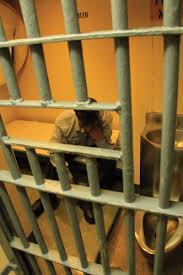Introduction
Battery, as defined under California Penal Code 242, is a criminal act that involves the use of force or violence against another person without their consent. This statute is crucial for maintaining public safety and holding individuals accountable for physically harmful behaviors. Throughout this page, we will explore the precise legal definition of battery, provide clear examples and elements of the offense, discuss potential defenses used by Orange County criminal defense attorneys, and outline the penalties that can result from a conviction. Understanding these aspects will provide valuable insight into how such cases are handled by Orange County criminal defense lawyers within the California legal system and the impacts they can have on both victims and perpetrators.
Understanding California Penal Code 242 Battery

Understanding the legal intricacies of battery under California Penal Code 242 is essential for anyone residing in California. This law outlines what constitutes battery, its legal ramifications in the Orange County courts, and the potential defenses a criminal defense lawyer might employ. Here we’ll explore the definition, practical examples, required conviction elements, defenses, and penalties associated with the crime of battery.
Definition of Battery
Under California Penal Code 242, battery is defined as any willful and unlawful use of force or violence upon the person of another. Notably, it is not necessary for the victim to suffer any injury; the mere act of using force or violence is sufficient to qualify as battery. This broad definition encompasses a range of physical interactions, from minor offensive touches to severe assaults. Contrary to popular belief, physical pain or injury does not need to be proven, which distinguishes battery from assault—a charge often dealing with the attempt or threat to use force.
Real-life Examples of Battery
To contextualize California Penal Code 242 Battery, consider these real-life scenarios:
– Intentional Shoving in a Crowded Place: If someone purposefully shoves another person while queuing or in a crowd, this can be considered battery, even if the victim does not fall or sustain visible injuries.

– Spitting on Someone During an Argument: This act involves physical contact made in an offensive manner and can be categorized as battery.
– Throwing an Object: Hitting someone with an object, purposefully or recklessly, qualifies as using force and thus, constitutes battery.
– Unwanted Kiss: Forcibly kissing someone, despite their objections, falls under the umbrella of unlawful and offensive physical contact.

Each of these examples illustrates how seemingly simple actions can meet the legal qualifications for battery under California law.
Elements Required for a Battery Conviction
For a battery conviction under California Penal Code 242, the Orange County District Attorney must prove certain elements beyond a reasonable doubt. These elements include:
1) Willful Contact: The defendant must have willfully made physical contact with another person. This implies an intentional act. This leaves room for your Orange County criminal defense attorney to argue that the act was one resulting from negligence or accident.
2) Unlawful Force or Violence: The contact must involve force or violence. The term ‘force’ can be broadly interpreted to include even minimal contact if it is done in a rude or angry manner.
3) Non-Consensual: The act must have been executed without the consent of the other party involved.
If your Orange County criminal defense attorney can show the absence of any of these elements during a trial, it can significantly impact the direction and outcome of the case.
Common Defenses against Battery Charges
Several defenses can be raised to combat charges of battery. Some of the most commonly used defenses include:
– Self-Defense: Arguing that the force used was necessary to protect oneself from imminent danger or harm.

– Defense of Others: Similar to self-defense, this entails proving that the action was necessary to defend another individual from immediate threat.
– Accidental Contact: Your criminal defense attorney may be able to show that any contact made with the accuser was accidental and not willful or violent.
– Consent: Sometimes, in contexts such as sports or medical procedures, physical contact is expected and consented to, negating the unlawful aspect of battery charges.
A successful defense can result in a reduction of charges or even complete exoneration, depending on the circumstances.
Potential Penalties for Battery Convictions

The penalties for battery under California Penal Code 242 vary depending on the circumstances and severity of each case. Common outcomes include:
– Fines: Typically, fines can range considerably, but for general battery, they might be up to $2,000.
– Incarceration: Sentences can vary from days in the Orange County jail to years in the California state prison, particularly if the battery causes serious bodily injury or involves protected classes of persons, such as police officers.
– Probation: In lieu of or in addition to fines and jail time, a court might order probation. This usually involves meeting certain conditions, such as attending anger management classes or performing community service.
– Restitution: Often, offenders must compensate the victim for medical expenses or other costs related to the battery, such as counseling.
Each of these penalties reflects the legal system’s commitment to addressing and deterring acts of battery, ensuring public safety and respect for personal integrity. Because punishment under California Penal Code 242 can be severe, it is essential to consult with an Orange County criminal defense lawyer as soon as possible. Since most criminal defense lawyers offer a free consultation, there is no reason not to enjoy the benefits of several consultations with several different criminal defense lawyers.
Free Consultation With an Experienced Orange County Criminal Defense Attorney

At The Law Office of EJ Stopyro we offer a free and confidential telephonic consultation. Call us today at (949) 278-6353 to schedule your consultation today. Mr. Stopyro will fully evaluate your case right over the phone, explaining the strengths and weakness of your case.
Conclusion
In sum, understanding California Penal Code 242 Battery is crucial for those facing battery charges. An Orange County criminal defense lawyer can explain what constitutes battery, its elements, and possible defenses, all of which hinge on the specifics of the physical contact and the intent behind it. Moreover, the penalties attached can vary significantly, impacting the severity of consequences for the accused. Awareness and comprehension of these aspects can help individuals navigate possible legal scenarios more effectively. This insight into battery law serves as a guide for expected judicial processes and underscores the importance of experienced legal counsel in such cases.
